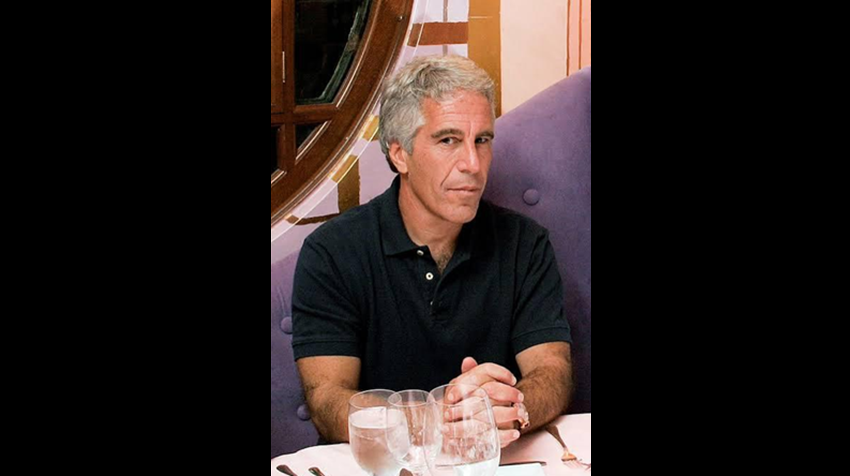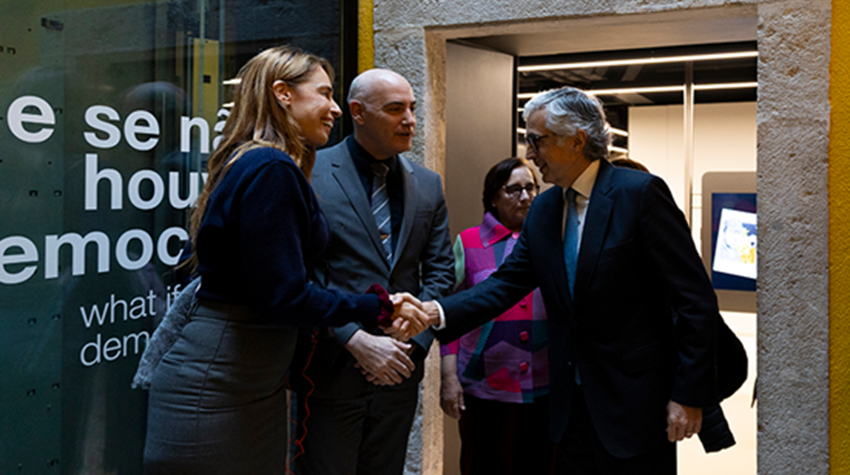Credit: EPA
The funeral of Prince Karim al-Hussaini, the 49th hereditary Imam of the Ismaili Muslims, who passed away on Tuesday, will take place on Saturday and will be a simple ceremony, similar to that of other believers, a source from the Ismaili Imamat said on Thursday.
At a press conference, Naguib Kerat, senior adviser to the Ismaili Imamat, stated that the former Aga Khan, who passed away at the age of 88 in Lisbon, will have a ceremony in accordance with Ismaili traditions—simple and centered on prayers, which largely consist of recitations from the Quran.
The funeral will also be an opportunity to offer condolences to family members and to participate in a final procession alongside the urn as a mark of respect.
It will be an intimate and private ceremony, attended by invited guests only, including hundreds of people such as all members of the Prince’s family, leaders of Ismaili communities worldwide, and staff from institutions like the Aga Khan Development Network (AKDN).
Representatives of the Portuguese government and foreign dignitaries will also be invited.
Rahim, the eldest son of Prince Karim, is the new leader of the Ismaili community, the chosen successor of the 49th Aga Khan, whose name was recorded in his will.
Since the Aga Khan was not only the religious and spiritual leader of the Ismaili Muslims, a branch of Shi'ism, but also their political leader, the funeral rites will include a ceremony equivalent to an enthronement. This will allow the 22 international presidents of the Ismaili community to take the oath of allegiance to the new Imam on behalf of the communities they represent.
This ceremony, set to take place next Tuesday, will also be private and will include Quranic recitations, devotional poetry, and music.
A Simple, Private Ceremony on Saturday
A significant symbolic moment will be the formal signing of the "Ismaili Constitution" under the authority of the new Aga Khan, who will have the opportunity to address the assembled leaders and the wider community that regards him as a monarch.
The 50th hereditary Imam of the Ismaili Muslims, who has chosen the name Prince Rahim Aga Khan, was born on October 12, 1971, in Geneva. He assumes leadership of the Ismaili community after having spent the past 20 years managing the Aga Khan Development Network (AKDN), where he has been a key figure in various capacities.
According to the biographical note released by the Ismaili Imamat, the new Aga Khan has also been closely involved with the Institute of Ismaili Studies and the community’s social governance institutions.
The passing of Shah Karim al-Hussaini, the 49th Imam of the Ismaili Muslims, marks the end of a seven-decade-long chapter of spiritual leadership and complex financial management, leaving behind a vast legacy. More than just a religious figure, Aga Khan IV—who held British, French, Swiss, and Portuguese citizenship—was the architect of a global philanthropic empire, with interests spanning education, energy, telecommunications, and agriculture. He also established a unique agreement with the Portuguese government that grants tax exemptions to his foundation and fortune.
Aga Khan and Portugal: A Legacy of Philanthropy and Investment
In Portugal, where he established the world headquarters of the Ismaili Imamat in 2016, his contributions amount to hundreds of millions of euros. These include a €100 million project for the construction of the first Aga Khan Academy in Europe, in Oeiras, and an estimated €250 million generated in the national economy in 2018 during the celebration of the Diamond Jubilee of Aga Khan IV as the spiritual leader of the Nizari Ismailis. The figures are remarkable.
However, the global influence and financial strength of the Ismaili Imamat are not reflected solely in its Portuguese operations. The economic core of the Aga Khan’s empire is based in Switzerland.
A Global Financial Network
Behind the philanthropic face of the Aga Khan Foundation is the Geneva-based Aga Khan Fund for Economic Development (AKFED), which serves as its economic arm. AKFED holds stakes in companies operating in strategic sectors such as energy, telecommunications, tourism, insurance, and banking across several countries, including Pakistan, Afghanistan, Uganda, Tanzania, Mozambique, and Switzerland.
In Portugal, the presence of AKFED is more discreet. While it has no registered companies, the Ismaili Imamat has established entities responsible for managing key properties, such as:
- The Mendonça Palace, acquired in 2016 for €12 million to house the Aga Khan Foundation Portugal.
- The 1904 Leitão Mansion, designed by Nicola Bigaglia and purchased in 2020 for €13.5 million.
- Future projects, including the first Aga Khan Academy in Europe, which remains stalled at the Oeiras City Council.
A Deep Emotional and Financial Connection to Portugal
The relationship between Portugal and the Ismaili Imamat has deep historical roots, dating back almost six decades. The foundation for this bond was laid in 1960 when the then-President of Portugal, Américo Thomaz, awarded the Ismaili leader the Grand Cross of the Order of Infante D. Henrique—one of the first international honors bestowed upon the Imamat. Over the years, the institution has received numerous other grand crosses from Portuguese orders, further solidifying ties between the two entities.
The most significant milestone in this relationship came in June 2015, with the signing of a protocol between the Portuguese government and the Ismaili Imamat. This agreement granted the religious institution and its leader substantial tax and legal benefits for 25 years.
These privileges include full tax exemptions on donations, real estate, and vehicles—such as the luxurious yacht Alamshar (named after one of the prince’s former racehorses) and several private jets—as well as tax exemptions on the salaries of senior officials. This favorable tax framework was a decisive factor in the Imamat’s decision to establish its global headquarters in Portugal, reinforcing decades of strong relations between the country and the Ismaili community.
Throughout his long leadership, Prince Karim Aga Khan was guided by integrity and ethics, standing out as a model of interfaith coexistence and as a promoter of the well-being of his community.
Source: Lusa and Ecco



































